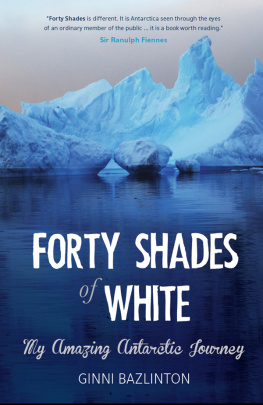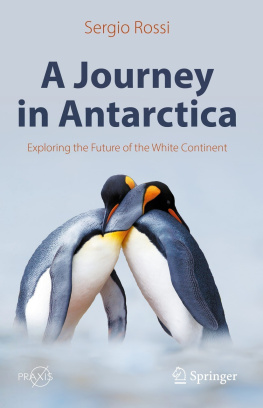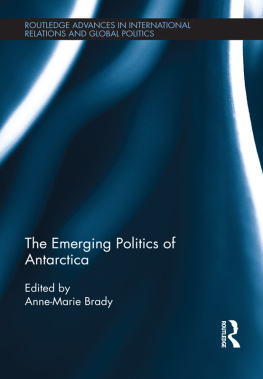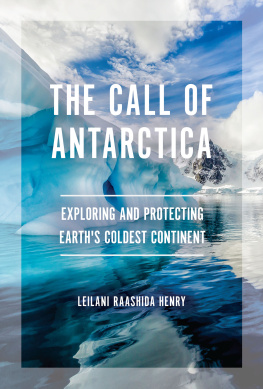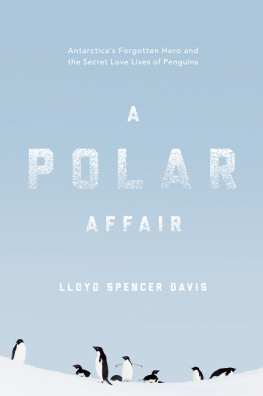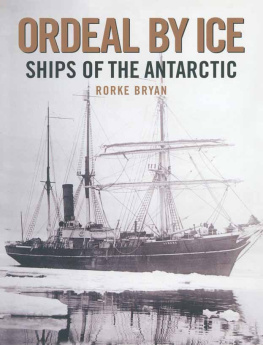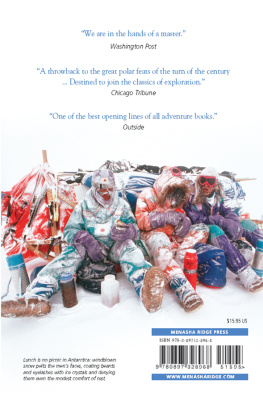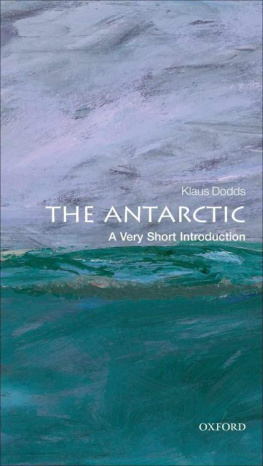FORTY SHADES OF WHITE
My Amazing Antarctic Journey
Ginni Bazlinton
THE AUTHOR
Brought up in Zimbabwe and the UK, Ginni Bazlinton, after a career as a professional dancer in the theatre and at the world famous Murrays Cabaret Club, commenced her world travels in earnest at the age of 52, visiting in quick succession Morocco, Japan, Chile, Argentina (including Patagonia) and Antarctica. She has taught English as a foreign language working in Portsmouth, Japan and Chile and shares her passion for Antarctica and her other experiences through teaching, writing and advocacy.
FORTY SHADES OF WHITE
My Amazing Antarctic Journey
GINNI BAZLINTON

EXPLORE BOOKS
LONDON
First published in 2016 by
EXPLORE BOOKS
26 Grosvenor Road, London, N10 2DS
www.exploretravelwriting.com
email:
Copyright text 2016 Ginni Balinton
Foreword copyright @ 2016 Sir Ranulph Fiennes
All rights reserved. No part of this publication may be reproduced, stored in a retrieval system, or transmitted, in any form or by any means, electronic, mechanical, photocopying, recording or otherwise, without the prior permission of the publisher.
The right of Ginni Bazlinton to be identified as the Author of the Work has been asserted by the author in accordance with the Copyright, Designs and Patents Act 1988.
For bulk and special sales please contact
A catalogue record for this book is available from the British Library
Cataloguing-in-Publication Data is available from the Library of Congress
ISBNs: 978-1-911184-00-3 (paperback)
978-1-911184-01-0 (ePub)
978-1-911184-02-7 (mobi)
Typeset by JPO design and typesetting.
Maps by Simonetta Giori.
eBook converted by Geethik Technologies
CONTENTS
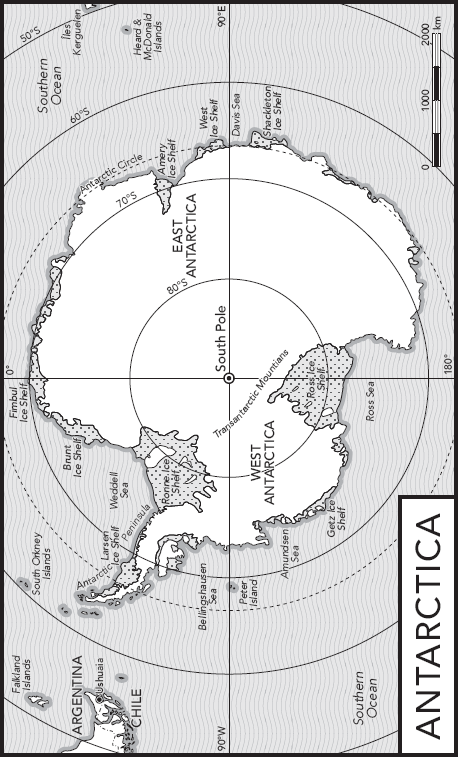
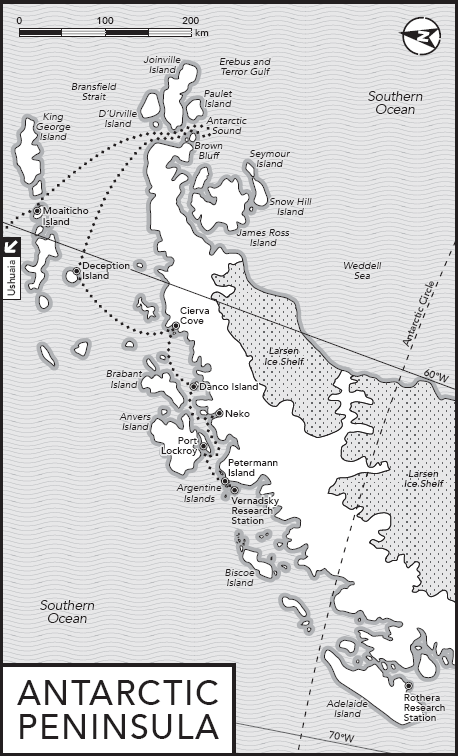
FOREWORD
by Sir Ranulph Fiennes
Forty Shades of White: My Amazing Antarctic Journey is the story of a grandmother who sets off alone to fulfil her childhood dream of going to the end of the world, totally unaware of the life-changing impact it would have on her. Her journey takes her to a unique continent that has changed very little in 55 million years. Virginia Bazlinton invites you to take a step back into childhood, that time of imagination, spontaneity and discovery, when the self is lost in the timeless immediacy of the moment. She enters a magical land which is still hiding many secrets; so far away from our daily lives that few of us know very much about this continent of superlatives. Over the years, many books have been written about Antarctica by scientists, TV presenters, explorers and travel journalists.
Forty Shades of White is different. It is Antarctica seen through the eyes of an ordinary member of the public. It clearly had a life-changing impact on the author, both enriching yet humbling her. Whether you pick up this book as background reading for a trip you propose making, or if youve already been there and want to compare your experience with others, it is a book worth reading.
I can fully understand Virginias feelings, having led the first one-way crossing of Antarctica on the Transglobe Expedition 197982, and other later ventures on this continent. The uniqueness of this unspoilt land leaves one with a new sense of awareness making Antarctica impossible to forget. This continent must be preserved, and this can only happen through knowledge and understanding of such an important place on our planet.
Sir Ranulph Fiennes, 2015
1. PROLOGUE
It rose out of the water like some giant prehistoric monster; it appeared to be smiling at us. It heaved its massive body up into the air, arching its back before diving back into the water with just its tail suspended like a weirdly shaped mushroom growing out of the sea. Then it disappeared back into the icy depths. I had no idea that a humpback whale could leave such an indelible imprint on my memory. But that was what Antarctica was like for me always taking me beyond what I knew. The decision to go was made spontaneously; I did not realise that the continents sights and sounds like the humpback whale were to change the way I was to think about the world.
You must be mad! Why on earth do you want to go to such a bitterly cold, remote place; theres nothing there and nothing to do? That was the reaction I got from some of my friends. I couldnt answer why I wanted to go, it was just a spontaneous decision. My family however, thought it would be a wonderful adventure. They know I have an incurable travel bug and have to go off to some far-flung place from time to time. Their only comment was, You wont do anything stupid will you?
My academic achievements when I left school were sadly lacking. I used to spend a lot of my time daydreaming about being a ballerina; a status I didnt quite aspire to but I did make a living as a professional dancer in the theatre. My life treading the boards came to an end a couple of years after I got married with the arrival of my sons. I settled down to my new life as a wife and mother and continued to attend a weekly ballet class. Life was happy for fifteen years and then came the crash. Following divorce I found solace in education, it couldnt hurt me; it was up to me to work hard and succeed. I went to university and then taught English as a foreign language at an adult language school in Portsmouth.
One afternoon I was teaching a Spanish student named Manuel. He told me he didnt want to learn grammar, all he wanted to learn was new vocabulary, to speak and be corrected if he made a mistake. Having planned a lesson for him, I suddenly had to abandon it and think on my feet; well backside in this case. I sat poised with pen and paper at the ready and asked him to tell me about himself. He told me he was living in Chile and was the manager of a flying school in Santiago. He then described a train journey in the Andes, the longest mountain range in the world, going south from Santiago to a place called San Fernando. I was so engrossed with his vivid description of the terrain I dont recall even making one mark on the paper. Fortunately I was recording his lesson so we could analyse it later. I was hooked. I knew that as soon as my youngest son left home, Santiago was where I would go.
I spent eighteen months teaching in Santiago and before leaving for England I decided to spend three weeks in the far south of Chile and Argentina. On a Saturday in September I flew to Punta Arenas, the most southerly inhabited mainland place in the world. I booked into a residencia (a guest house) for two nights. I had hoped to leave for Ushuaia in Argentine Tierra del Fuego the next day but there were no buses on a Sunday. The next morning I woke up to heavy, overcast skies. Despite the terrible weather, I braved a walk along the seashore of the Magellan Strait, the graveyard of a good many ships that met their fate in the Southern Ocean. It was such a bleak, desolate place; a bone chilling cold wind lashed against me, and the rain, like sharp needles of ice, stung my face. I didnt see another human being anywhere; the atmosphere was forlorn and forgotten. I suppose its only mad dogs and English grandmothers who go out in the morning wind and rain on the shores of the Magellan Strait.
Next page
